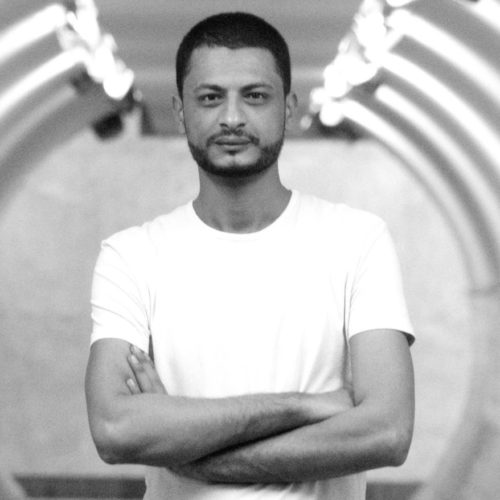In the name of God, the Most Gracious, the Most Merciful,
My friends, it is with great sorrow that I write to you the following:
Time has passed us by…I have spent twenty and some years amongst you as a brother, a friend and a son… I was raised the same way my ancestors and your parents had been raised… We receive what God provides, hope for a happy tomorrow and thank God for the good and the bad.
Over the past few days, I have been observing in silence the way things are turning out to be… I have been given all kinds of names… been subject to endless accusations… I have been threatened with death and accused of shedding blood and of perversity… I have been accused of high treason, apostasy, belonging to terrorist groups and cursing the Prophet Mohamed, blessings and peace be upon him.
Therefore, I deem it necessary to clarify some points that might have confused both friends and strangers.
First: My book The Best Women on Earth (خير_نسوان_الأرض)
Personally, I have always believed that we, the sons of Adam, were created to fulfill a mission. If we do not complete that mission, our life could never be whole. I have always believed that a man could only be complete with a woman; that the highest of men has in his heart a place for a woman, in the arms of whom he would not be ashamed to become a child and tell about what is bothering him; that a man does not become a man without a woman, may she be a mother, a wife or someone else.
“Cover me, Khadija,” said our Prophet Mohamed Ibn Abdallah, blessings and peace be upon him, when he felt the immensity of the mission and needed to feel secure. He said that. He, the one whom God created so perfect without any flaws, has sought refuge in his wife from whom he drew strength and the ability to carry on… from her, a woman.
Whoever amongst us has not seen hither and thither the picture of a Palestinian mother over the past few years? That old woman whose perseverance and strong will remain the same, even if her facial features have changed… That woman who brings to life children to die… Her children haven’t had enough of death and she hasn’t had enough of believing in the cause and giving birth to heroes. That woman.
At the beginning of the twelfth century, specifically in 1140, in Weinsberg, Germany, King Conrad III had spent months trying to enter the city. He had cut off all the supplies and besieged the city until its ramparts and walls fell. Its men sought refuge in the castle and continued defending it until it fell into King Conrad’s hands. The King wanted revenge against those troops because he could not have seized the city unless their supplies had ran out. He allowed the women to leave with all that they could carry. He promised and gave his word. All the women got out of the city. Each one of them carried her husband soldier on her back. The King had to stand by his word, and the soldiers left the city carried on their wives’ shoulders. That castle is known today as “Wifely loyalty”.
The Best Women on Earth. This title does not refer in any way whatsoever to the Egyptian soldiers. It is rather a recognition of the value of women and of their good deeds in this world. Every soldier, man, fighter, scientist, and inventor is the result of a mother’s education, a wife’s embrace and a daughter’s innocence. These women are the The Best Women on Earth.
Second, what has been said about the text on the book’s back cover, which goes as follows:
“Don’t believe our lie
Don’t believe them, kids,
We have never won any war
Nor have we ever protected any country
Our glories are forgeries
Our history is a fake
The story of the Arabs is ridiculous
The story of pimp prophet”
I was born in this Arab country, along with an endless series of unfortunate events whose disastrous results still rule over the Arab landscape today. Countries fell one after the other, starting with Palestine, the stolen country, followed by Iraq, Sudan, Libya, and dear Syria. Meanwhile, the unfortunate Arab silence has remained. If not silence, then useless, pointless and needless condemnation.
The text published on the back cover is an admonition against, a blaming of, a condemnation of and a shaming of the Arab attitude regarding the violations, meddling, terrorism, brotherly quarrels and weakness that plague the Arab World, as well as a downgrade from a status that we had inherited, been taught and heard about from our young age. An Arab had gallantry, nobility and braveness that are unfit for what has been happening over the last few decades.
To all those keeping track, Hanthala, the Palestinian child who is no more than ten years old, features on the covers of my last two books A Prison in Colors (سجن بالألوان) and Best Women on Earth (خير نسوان الأرض). He is featured the same way he was created by Naji al-Ali to witness the acts of all the Arabs. I have no idea why the text was interpreted as a denial of the Egyptian victory in the October War. We were the ones who got our land back with blood; we were the ones who felt defeated on Naksa Day and proud of el-Sadat’s speech, even if we did not live during these periods; we are the ones who have memorized by heart the songs written for those days; we are the ones who cry when we listen to Gamal Abdel Nasser’s resignation speech, although it was a past that did not happen and people did not let the leader resign.
To those who doubt my Egyptian patriotism and accuse me of treason, reconsider, investigate and seek the truth in your allegations. I am Egyptian and all my ancestors were Egyptians. I am very proud to belong to this country and this land.
Third: Accusing me of cursing our Prophet Mohamed Ibn Abdallah, blessings and peace be upon him.
Just like your children, I was brought up being obedient to God. Maybe I do not perform all five daily prayers, but I fear God and love all His prophets. I read His books and I turn to Him, like all of you, when things turn dire. I kneel crying when life becomes hard and I recite the Prophet’s prayers, and God has always stood by my side when noone else has.
I was more saddened than surprised following my accusation of cursing the Prophet because of the last two verses in the poem:
“The story of the Arabs is ridiculous
The story of pimp prophet.”
We are Arab Egyptians. We speak, write and learn the Arabic language, and yet, we don’t know the difference between a definite and an indefinite pronoun. If the poem had been written as follows “…The story of the [pimp] Prophet”, it would have been an obvious crime and a blasphemy. However, the verse was written with an indefinite pronoun, referring to two opposite qualities in order to highlight a contradiction, a practice that is almost always used in the language to explain a certain meaning. For we, Arabs, are known as being noble, brave and gallant rescuers, but we are standing idly by while the screams of our women are echoing and the blood of our children is being shed. We are like a man known for his apparent love of God, honesty and decency, but he is in reality the worst creation of God.
Whoever wants to be sure of the linguistic meaning of the verse, let them ask an Arabic teacher or a student proficient in the Arabic.
Finally:
Being against the events that are happening in the country does not disgrace me. Each one of us loves their country and each one of us fears for their country. However, each one of us has a personal vision that does not contradict the country’s interest… Enough with the labeling, accusations and false allegations! I am not a parasite living off my parents’ money, a futile person pretending to be what he is not, nor a hero, a brave, or a distinguished person. I am a young man trying to make ends meet, build a life and have one day children who know how to be real human beings and who recognize the value of the land. I am like you, all of you: an Egyptian young man who tries to live and build for himself and for the next generation something real and secure that guarantees them a decent life.
Galalel-Behairy
Egyptian poet
Saturday, May 3rd, 2018
 Kirjoittaja on egyptiläinen runoilija, joka on joutunut syytetyksi Egyptin sotaoikeudessa keväällä 2018 ilmestyneen runokokoelmansa vuoksi, ja jonka sanoitusta muusikko Ramy Essamin kappaleeseen ”Balaha” tutkitaan samaan aikaan siviilioikeudessa. Galal El-Behairyn tuomio on määrä lukea huomenna 16. toukokuuta 2018. Tässä tiedotteessaan hän avaa syytteiden taustoja ja todistaa niitä vastaan. Lue PEN:in ja järjestöjen kannanotto ja allekirjoita vetoomus Galal El-Behairyn puolesta.
Kirjoittaja on egyptiläinen runoilija, joka on joutunut syytetyksi Egyptin sotaoikeudessa keväällä 2018 ilmestyneen runokokoelmansa vuoksi, ja jonka sanoitusta muusikko Ramy Essamin kappaleeseen ”Balaha” tutkitaan samaan aikaan siviilioikeudessa. Galal El-Behairyn tuomio on määrä lukea huomenna 16. toukokuuta 2018. Tässä tiedotteessaan hän avaa syytteiden taustoja ja todistaa niitä vastaan. Lue PEN:in ja järjestöjen kannanotto ja allekirjoita vetoomus Galal El-Behairyn puolesta.
